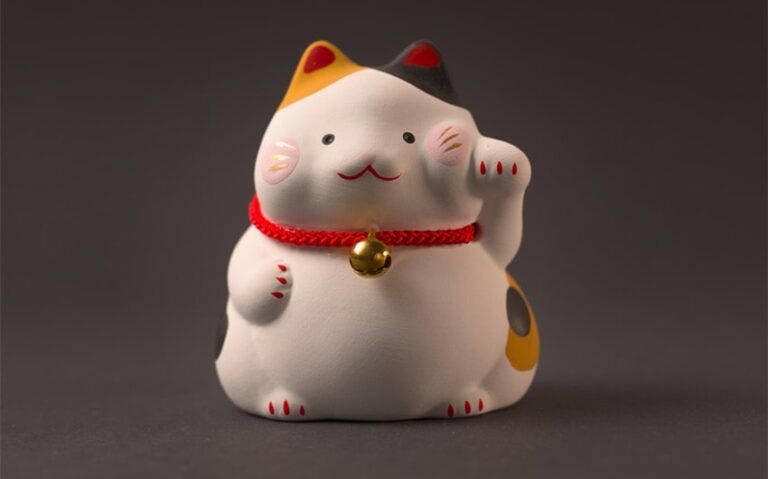90+ Names Meaning Nothing and Their Deep Symbolism Across Cultures
When you look up the name meaning nothing, it might sound strange at first. After all, most names are created to hold meaning — to express identity, virtue, or hope. Yet, throughout history, several names across cultures have been linked to the idea of “nothingness,” “emptiness,” or “void.” Far from being negative, these names often carry a sense of spiritual clarity, humility, or infinite potential. In many traditions, “nothing” is not the absence of meaning but the space where all meaning begins. In this article, you’ll explore different categories of names meaning nothing, each revealing how cultures worldwide have found beauty in simplicity and the quiet power of emptiness.
Names That Literally Mean “Nothing” or “Empty”
These are names that directly translate to “nothing,” “empty,” “void,” or “without.” Many originate from ancient languages like Sanskrit, Chinese, and Latin, where “nothingness” is viewed as sacred or philosophical rather than negative. In these cultures, such names symbolize detachment, enlightenment, or purity — the state of being beyond desire or illusion.
-
Nada (Spanish/Slavic) – Means “nothing” in Spanish but “hope” in Slavic languages, balancing absence and optimism.
-
Nihil (Latin) – Literally means “nothing,” used in ancient philosophy to describe the void before creation.
-
Mu (Japanese/Chinese) – Means “without” or “nothingness,” a central concept in Zen Buddhism representing the absence of self.
-
Śūnya / Sunya (Sanskrit) – Means “zero” or “emptiness,” the philosophical and mathematical origin of the word zero.
-
Wu (Chinese) – Translates as “nothingness” or “non-being,” foundational in Taoism as the balance of existence and void.
-
Nil (Sanskrit/Latin) – Means “nothing” or “zero,” symbolizing stillness and neutrality.
-
Null (English/Latin) – Means “void” or “nonexistent,” often used symbolically in modern names.
-
Kuu (Japanese) – Means “sky” or “emptiness,” reflecting openness and limitless potential.
-
Zeru (Basque) – Means “sky” but shares etymological roots with “zero.”
-
Noll (Scandinavian) – Means “zero” or “none,” a word for balance and equality.
-
Vacuum (Latin) – Means “emptiness” or “unfilled space,” representing the untouched state of creation.
-
Wu Wei (Chinese) – Means “non-action” or “effortless action,” symbolizing peaceful nothingness in Taoist thought.
-
Shoonya (Hindi/Sanskrit) – Another variant meaning “emptiness” or “void.”
-
Ain (Hebrew/Kabbalistic) – Means “nothingness” or “non-existence,” representing divine nothingness in Jewish mysticism.
-
Eim (Aramaic) – Means “void” or “absence,” sometimes used in poetic texts.
-
Maha-Shunya (Sanskrit) – Translates as “the great void,” symbolizing cosmic balance.
-
Noa (Hebrew) – Although it means “movement,” it is phonetically close to “no,” symbolizing rest or stillness in some interpretations.
-
Sughra (Arabic) – Means “small” or “minor,” implying humility and insignificance before God.
-
Holloway (English) – Derived from “hollow,” symbolizing emptiness or space within.
-
Eira (Welsh/Norse) – Means “snow,” representing purity and emptiness.
-
Kala (Sanskrit) – Means “time” but also represents the void from which time flows.
-
Ayin (Hebrew) – Means “nothing” or “eye,” a Kabbalistic symbol for the divine void.
-
Zen (Japanese) – Means “meditation,” embodying the practice of embracing nothingness.
-
Sora (Japanese) – Means “sky” or “void,” symbolizing openness and emptiness.
These names show that “nothing” can also mean everything — peace, balance, or the origin of all creation.
Names Associated with “Zero,” “Void,” or “Infinity”
Names in this category draw inspiration from numbers, space, or cosmic principles tied to “zero” or “infinity.” They express the idea of creation emerging from nothingness — the start of something vast, undefined, and limitless. In philosophy and spirituality, zero is not emptiness but potential. These names celebrate the boundless and the eternal.
-
Zero (English/Italian) – Represents “none,” “start,” or the blank space before creation.
-
Aether (Greek) – Means “upper air” or “space,” symbolizing the unseen element connecting everything.
-
Abyss (Greek) – Means “bottomless depth,” representing infinity or mystery.
-
Nova (Latin) – Means “new,” symbolizing birth from emptiness.
-
Shunyao (Chinese) – Means “vast emptiness” or “boundless sky.”
-
Akasha (Sanskrit) – Means “ether” or “space,” considered the fifth element representing infinite expanse.
-
Ananta (Sanskrit) – Means “infinite” or “endless,” linked to eternity.
-
Cosmo (Greek) – Means “universe” or “order,” the opposite of chaos but born from it.
-
Oren (Hebrew) – Means “pine tree,” but symbolically represents enduring existence within vast emptiness.
-
Ciel (French) – Means “sky” or “heaven,” symbolizing boundless space.
-
Ether (Greek/English) – Represents the invisible element that fills the heavens.
-
Zenith (Arabic/Latin) – Means “highest point,” implying infinite elevation.
-
Vacuo (Latin) – Means “void” or “unfilled,” used in philosophical texts.
-
Ain Soph (Hebrew/Kabbalistic) – Means “without end,” referring to the infinite divine.
-
Astrid (Scandinavian) – Means “divine strength,” but symbolically tied to starlit infinity.
-
Celeste (Latin) – Means “heavenly,” evoking vastness and endlessness.
-
Orrin (Gaelic) – Means “pale” or “light,” symbolizing illumination through emptiness.
-
Skye (English/Scottish) – Derived from the sky, representing freedom and infinite space.
-
Halo (Greek/Latin) – Means “circle of light,” an unending loop representing eternity.
-
Tian (Chinese) – Means “heaven” or “sky,” connected to the infinite.
-
Ainulindale (Quenya, Tolkien) – Means “music of the Ainur,” creation from the void in mythic language.
-
Oni (Japanese) – While it means “spirit” or “being,” it’s also used symbolically as form emerging from nothingness.
-
Kairos (Greek) – Means “divine moment,” often viewed as the point when nothing becomes something.
-
Sahasra (Sanskrit) – Means “thousandfold,” suggesting infinite variety from a single origin.
-
Talia (Hebrew) – Means “dew from heaven,” representing renewal born out of stillness.
These names embody the idea that “nothing” can be the beginning of everything — the zero point of creation, freedom, and boundless existence.
Names Symbolizing Emptiness, Stillness, or Detachment
These names express the emotional and spiritual qualities of nothingness — peace, clarity, and freedom from attachment. They don’t literally mean “nothing,” but they embody its essence: calmness, silence, or purity. Across traditions like Buddhism, Taoism, and Stoicism, stillness is revered as the highest form of enlightenment — the quiet after chaos.
-
Calm (English) – Represents peace and balance in stillness.
-
Seren (Welsh) – Means “star,” symbolizing silence within vast space.
-
Aya (Japanese/Hebrew) – Means “color,” “light,” or “to fly swiftly,” reflecting subtle movement within stillness.
-
Koan (Japanese) – Zen term for paradoxes leading to enlightenment — insight through emptiness.
-
Satori (Japanese) – Means “awakening” or “enlightenment” through direct perception of nothingness.
-
Haru (Japanese) – Means “clear weather” or “spring,” symbolizing renewal after emptiness.
-
Silas (Greek/Latin) – Means “forest” or “wood,” connected to quiet solitude.
-
Lucien (French) – Means “light,” representing illumination through peace.
-
Zenon (Greek) – Derived from Zen, associated with balance and inner peace.
-
Lior (Hebrew) – Means “I have light,” symbolizing clarity emerging from silence.
-
Niva (Hebrew/Scandinavian) – Means “expression” or “open field,” symbolizing quiet openness.
-
Nila (Sanskrit) – Means “blue” or “calm,” reflecting vastness and serenity.
-
Rei (Japanese) – Means “spirit” or “zero,” linking calmness to the essence of nothing.
-
Aiko (Japanese) – Means “beloved child,” but phonetically echoes peaceful simplicity.
-
Kael (Gaelic) – Means “pure” or “slender,” representing lightness of being.
-
Akira (Japanese) – Means “bright” or “clear,” tied to mental and spiritual clarity.
-
Mira (Latin/Sanskrit) – Means “wonder” or “peace,” symbolizing awareness without chaos.
-
Sena (African/Italian) – Means “bringing heaven to earth,” implying peace and harmony.
-
Isla (Scottish) – Derived from “island,” representing isolation and serenity.
-
Solace (English) – Means comfort and peace in quietness.
-
Anaya (Hebrew/Sanskrit) – Means “caring” or “without a leader,” symbolizing spiritual detachment.
-
Ode (Greek) – Means “song,” symbolizing silent rhythm or harmony.
-
Shanti (Sanskrit) – Means “peace,” representing the calm that arises from emptiness.
-
Layla (Arabic/Hebrew) – Means “night,” symbolizing calm and reflection within darkness.
These names remind you that true meaning often lies in stillness — that peace, humility, and understanding are found not in abundance, but in simplicity and silence.
Modern and Creative Names Inspired by “Nothingness”
In contemporary times, artists, writers, and parents have embraced minimalist or abstract names inspired by the concept of “nothing.” These modern names often suggest individuality, rebirth, and creative potential. They show that “nothing” is not about absence — it’s about possibility.
-
Neo (Greek) – Means “new,” symbolizing creation emerging from nothingness.
-
Nulla (Latin/Italian) – Feminine form of “null,” meaning “none.”
-
Zerra (Modern) – Derived from “zero,” symbolizing fresh beginnings.
-
Void (English) – Used artistically to represent mystery and infinite space.
-
Vanya (Russian/Hebrew) – Means “gracious gift of God,” used for its minimalist charm.
-
Nola (Latin) – Derived from “nulla,” meaning gentle neutrality.
-
Orin (Hebrew) – Means “light,” symbolizing illumination in emptiness.
-
Sable (English) – Refers to blackness or night, symbolizing quiet mystery.
-
Echo (Greek) – Symbol of voice fading into silence.
-
Lyra (Greek) – Means “lyre,” symbolizing harmony between sound and silence.
-
Haven (English) – Means “safe place,” representing peace within stillness.
-
Indra (Sanskrit) – Name of a deity, but in modern use symbolizes power born from emptiness.
-
Rune (Old Norse) – Means “secret,” representing the mystery of the unknown.
-
Zephyr (Greek) – Means “west wind,” symbolizing gentle movement in emptiness.
-
Aura (Latin/Greek) – Means “breeze” or “subtle presence.”
-
Novi (Modern Latin) – Derived from “nova,” meaning new beginnings.
-
Kaia (Scandinavian/Hawaiian) – Means “pure” or “sea,” representing vastness and renewal.
-
Eden (Hebrew) – Means “delight,” but symbolically represents the blank perfection of paradise.
-
Ashen (English) – Means “pale gray,” symbolizing simplicity and neutrality.
-
Mirae (Korean) – Means “future,” representing potential that begins in nothing.
-
Rumi (Japanese/Persian) – Poet’s name meaning “beauty” or “flowing,” tied to inner silence.
- Vera (Latin) – Means “true,” representing purity of being.
-
Cleo (Greek) – Means “glory,” often used symbolically for self-realization emerging from nothing.
Each of these modern names transforms “nothing” into an opportunity — a blank page, a quiet soul, a space to begin again.







